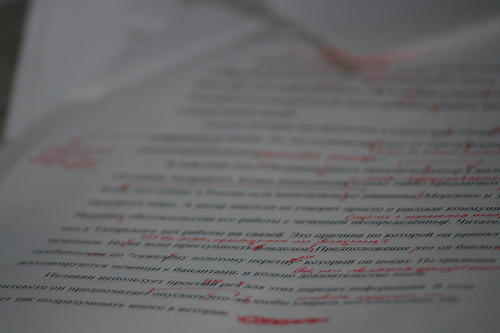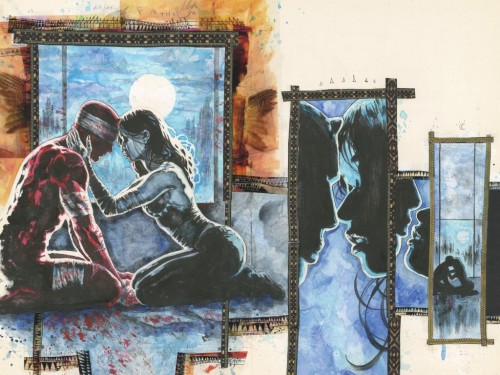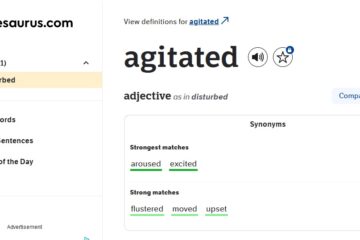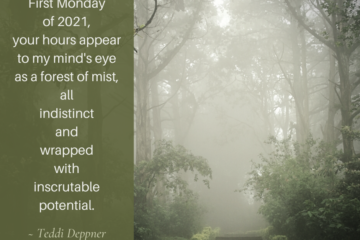I saw this on Twitter today and decided I just couldn’t keep quiet on this subject anymore:
“Writing without revising is the literary equivalent of waltzing gaily out of the house in your underwear.”-Patricia Fuller
A great sound bite. A sensational image in your mind’s eye. But in the end, it simply perpetuates what I believe is a damaging myth for indie authors everywhere.
Why This Debate Matters Now
This whole question of whether to rewrite stories wasn’t such a big deal a decade ago. Sure, it was still affecting writers, but it wasn’t as critical an issue. Why? Because back then it wasn’t this easy to publish a book! Today I can draft something, format it for e-readers, and publish it through Amazon.com onto the virtual bookshelves right next to yesterday’s classics and today’s bestsellers. No gatekeeper. No stopping me.
With great power comes great responsibility. More to the point, if you want success publishing your own books, you need to know “how good is good enough” before you upload that precious novel of yours to Amazon.com. How much revision does it take? What is a “quality book” that will make fans out of first-time readers?
Another huge reason that this question matters more now than ever is because one of the most effective ways to make fans out of new readers is to have a bunch of books available for them to read. [tweetthis url=”http://ctt.ec/z4hF9″ size=”ttsm”] A reader discovers a book, they like it, and then they want more. If there are a bunch of books available and more on the way, there’s a good chance that new reader will become a fan who keeps coming back.
Why I care enough to beat you over the head with this post (*smack!*)
If re-writing and revising one’s work is the key to making a quality book, then we need to know.
But if it’s not… if it’s detrimental to writers, we need to know that, too!
I care about you, dear writer friends. And I write today because:
- certain kinds of revisions can destroy the fresh, original voice of a story
- revising is not writing, and better writing comes through more writing, not more revising
- writing a book is takes long enough without getting bogged down in the twilight of the revision-procrastination zone
- by far the most effective marketing tool for the new indie author of today is having a lot of books available to readers, so “ship it”!
*** The disclaimers ***
- Every writer is different.
- “Your mileage may vary.”
- If you’re the type of writer whose prose and overall story gets better with every draft, and you know this for a fact, then DO WHAT WORKS FOR YOU. Period.
- If you know your work isn’t ready and would disappoint paying customers, then keep writing and improving until it is.
The one thing missing from this debate
I’ve read a number of articles on this topic, and one critical factor is rarely given the weight I feel it deserves:
Judging art as if there is a single, objective measurement of beauty or enjoyment is completely absurd. [tweetthis url=”http://ctt.ec/Mc5o1″]
These statements fall under this category of absurdity:
- “Prolific writers put out books of lesser quality.”
- “Quick writing is sloppy writing.”
- “A book like this will never be a classic.”
- “Go ahead and write pulp fiction if you want. I want to write something of excellence, a work of true literary value.”
- “A book that popular is probably trashy, anyway.”
We all tend to judge books by what we enjoy. We each have our tastes, our preferences. Some of us are sophisticated, some of us are easily entertained. There are as many different kinds of readers as there are different kinds of writers! And yet we often assume that if a book doesn’t please us, it won’t please anyone else. Big mistake!
Real food vs. junk food
I’m not saying that poor writing doesn’t exist.
I’m not saying that immature writing doesn’t sometimes get popular.
In fact, I agree with the idea that some books are the “junk food” of the reading world. The “reality TV shows” of the book world. Full of sensationalism and designed to provoke emotions and create addicts without offering much of lasting value or without any sort of uplifting, moral impact. There’s something to be said for using the power of words wisely, using them to encourage a better individual or a more healthy society.
However, when we’re giving advice to sincere, aspiring authors who want to jump into the indie publishing waters, let’s not put up false barriers. The number of revisions really doesn’t have anything to do with the junk food issue. Whether or not the book is “junk food” is a choice the author makes when they choose the story and theme and write it. The McDonald’s franchise owners of the world all have to settle in their own conscience whether or not they’re okay with selling garbage to junk food addicts. Some people don’t care that it’s junk, it’s what they like!
But we’re not here to debate whether it’s a good idea to write books that are nothing more than candy for sugar addicts.
The real question is whether the writing is ready for public sale. Is it going to satisfy readers? Is it “good enough”? Which begs the question…
What is good art?
Good art is art that moves us. Art that expresses something about being human. Struggle, tragedy, kindness, disappointment, triumph, beauty. Good art captures and illustrates these things. I think looking at the visual arts offers a helpful illustration. What exactly does good art look like?
Does it have to be in a museum to be good art?
Can street artists qualify?
What if it is commercialized and sold on pillows and shower curtains?
What if it is drawn on napkins?
Great art is not always an oil painting. Sometimes it’s a comic book sketch. It would be a great mistake to compare the two. They are different forms of art. [tweetthis url=”http://ctt.ec/oMUpf”]
Same goes for books. Some books are a pencil sketch that is so realistic it could be a photograph.
Some books are a surreal portrait. Some are an impressionist landscape. Some are a graphic novel, portraying an ongoing comedy or drama.
Collect the ones you like. Avoid the ones you don’t.
Respect the rights of others to value books you don’t like.
Further reading (the meat of the discussion)
This post is my contribution to the discussion. But the meat of it is out there, on the Net.
Hybrid author Dean Wesley Smith is often quoted in this debate. He operates in both the traditional and indie sides of publishing, which gives his perspective some weight. These two articles pretty much cover things on the “don’t revise” side of the equation:
Killing the Top Ten Sacred Cows of Publishing: #3…Rewriting
This article contains some useful definitions (rewriting vs. redrafting vs. touch-up and spell-check). “One fine evening I was having a conversation with Algis Budrys about rewriting… I asked him if he ever thought rewriting could fix a flawed story. His answer was clear and I remember it word-for-word to this day: ‘No matter how many times you stir up a steaming pile of crap, it’s still just a steaming pile of crap.’ …You have to write new material to learn. No one ever learned how to be a creative writer by rewriting. Only by writing. …Every writer is different, granted, but I have only met a few writers who really, really love to rewrite. Most find it horrid and a ton of work, but we all, with almost no exception, love to write original stuff. If you can get past the myth of rewriting, writing becomes a lot more fun. Following Heinlein’s Rules is a ton of fun, actually. And you end up writing and selling a lot of stuff as well.”
Killing the Top Ten Sacred Cows of Publishing: #6… Selling to a Big Publisher Insures Quality
“Thinking of all traditional fiction publishers as one large great judge of books is just flat wrong. A few people, sometimes less than two or three, are in charge of getting a traditionally published novel out to readers. Sure, there are others along the way, but only the editor, a sales person, and a publisher are the judges of quality of the book. And often one or two of them are missing in the equation. An ugly secret: Very, very often the editor is the only person in a publishing company who has actually read the entire book.”
Some dear peeps in the Christian speculative fiction community have piped up with their thoughts. I appreciate where they’re coming from, even though I approach this subject differently:
Quantity in Sacrifice of Quality
“A major gripe I have with much of the self-publishing community is that they push for authors to get as many books out there as fast as they possibly can… That’s very temping, but I still can’t get over the concern for quality when every single author is trying to do that.” Also see Trust Me, You NEED to Rewrite, same author, along the same lines.
The Speed of Excellence
“It’s the rare artist who can work both fast and clean. Speed begets sloppiness, to varying degrees, depending on the level of talent in the writer to churn out tight drafts.”
If your favorite article on this topic isn’t mentioned below, feel free to contribute it in the comments.








2 Comments
Kat Heckenbach · at
I think the revising is necessary to a certain level for all writers. No one’s first draft is going to be the best the story can be. BUT, for some writers, only a pass-through or two is necessary. Others need more work. Some writers can revise really quickly, others need more time.
I do agree wholeheartedly, that the focus on revision can be taken too far. And I also agree with your statement, “revising is not writing, and better writing comes through more writing, not more revising.” Yes, totally.
However, I think the harm in these posts about the need for authors to be crazy prolific is that it’s unrealistic for so many authors. And it does encourage those who really do need to revise to put their work out before it’s ready.
The key is really knowing when you’ve gotten the story to the point where the work of editing highly outweighs the level of improvement it will make. (This is not the same as settling for “good enough”–it is just stopping before that tipping point where you are obsessing over things that really aren’t going to make much difference.)
Teddi · at
Love the voice of reason here, Kat. I agree. There is a tipping point.
Still, I hope people take seriously the danger of editing out the fresh sound of their natural writing voice during the revision process.
I also feel for those newbie writers who are putting their work out before it’s ready. It will harm their chances of future sales, even after they’ve improved.
And I feel for us readers who have to wade through so many immature (not-ready) books to find the good ones in the pile on Amazon.com. I suppose the downside is that it turns Amazon.com into something only marginally better than the fan fiction boards of the Internet.